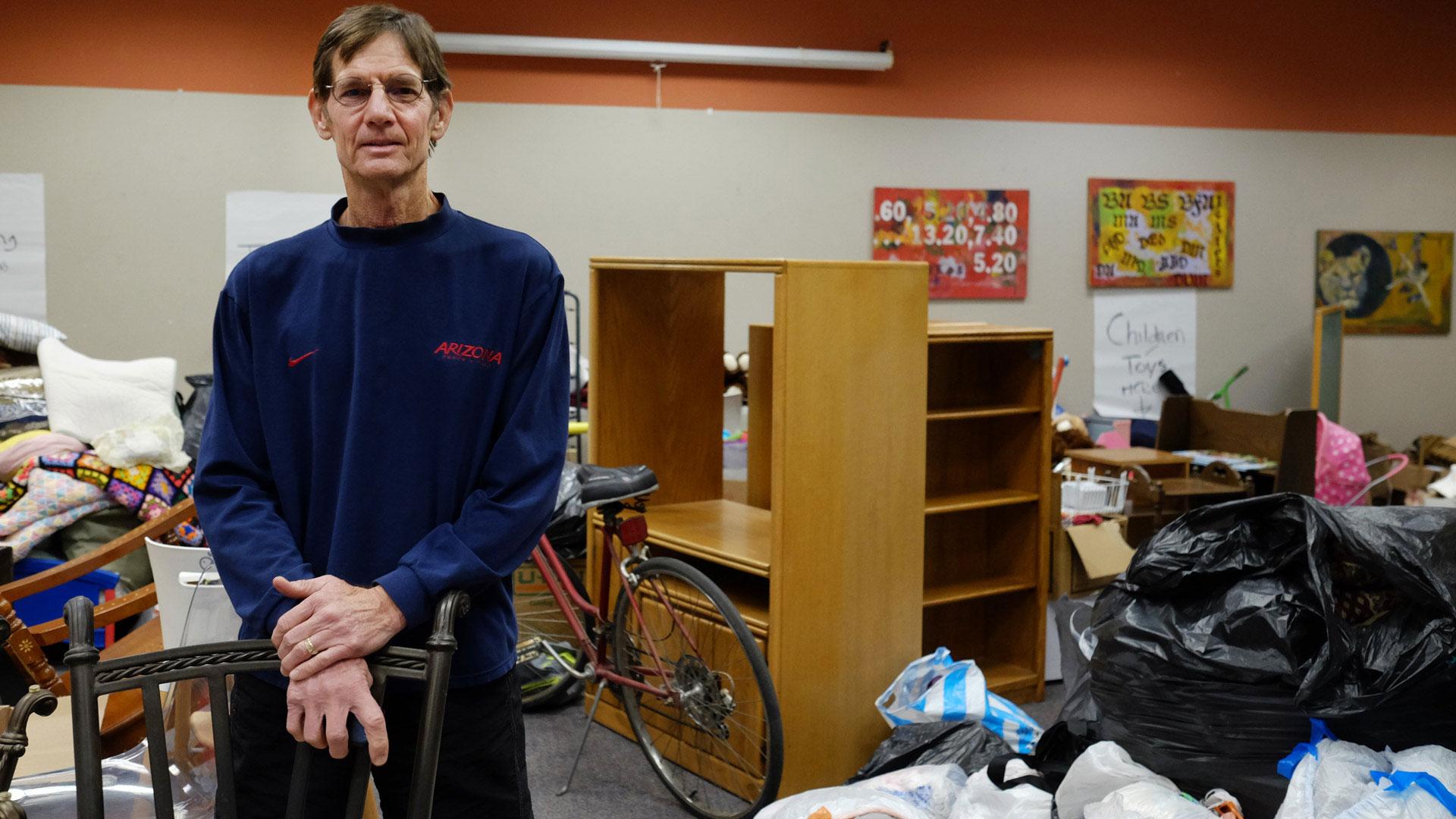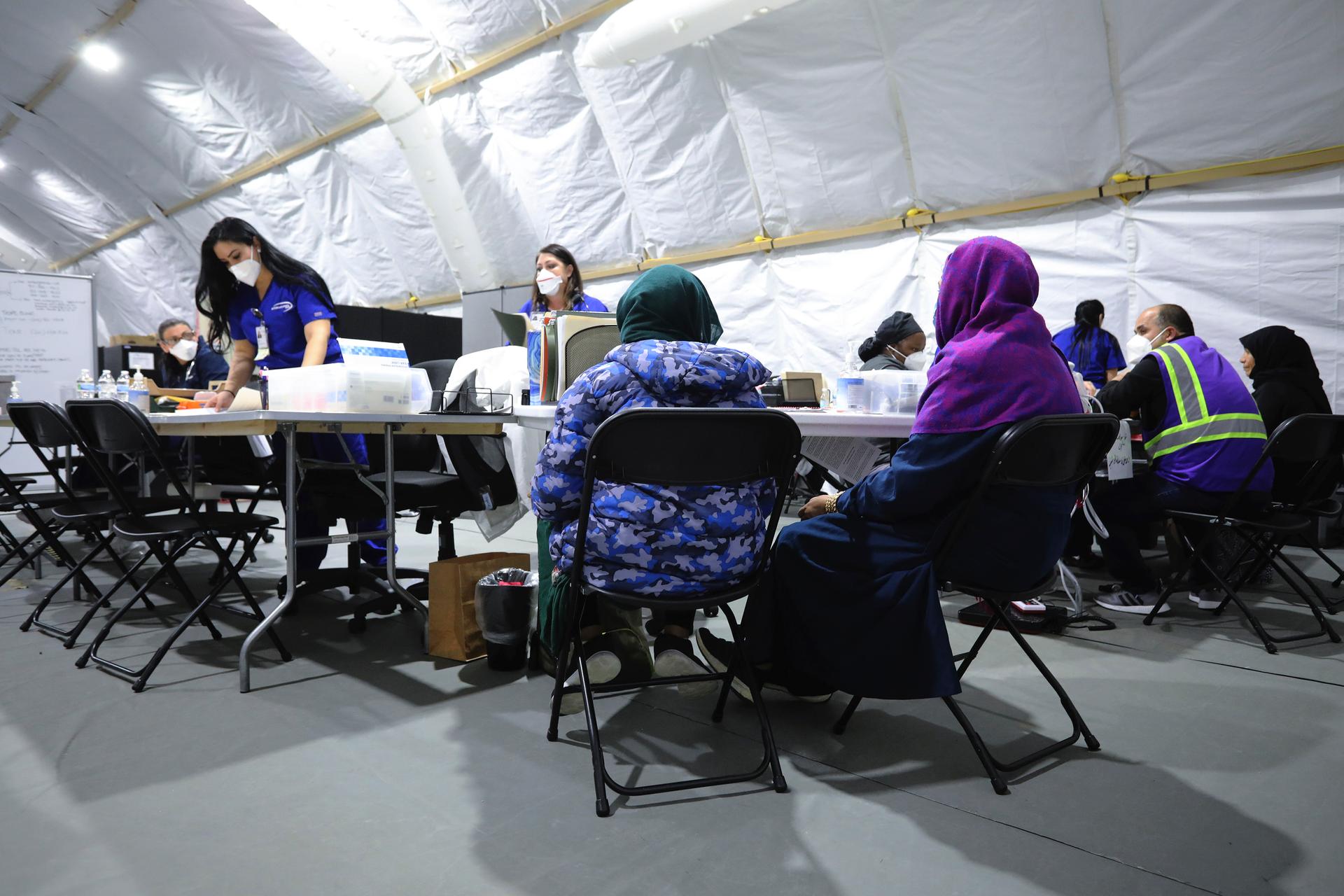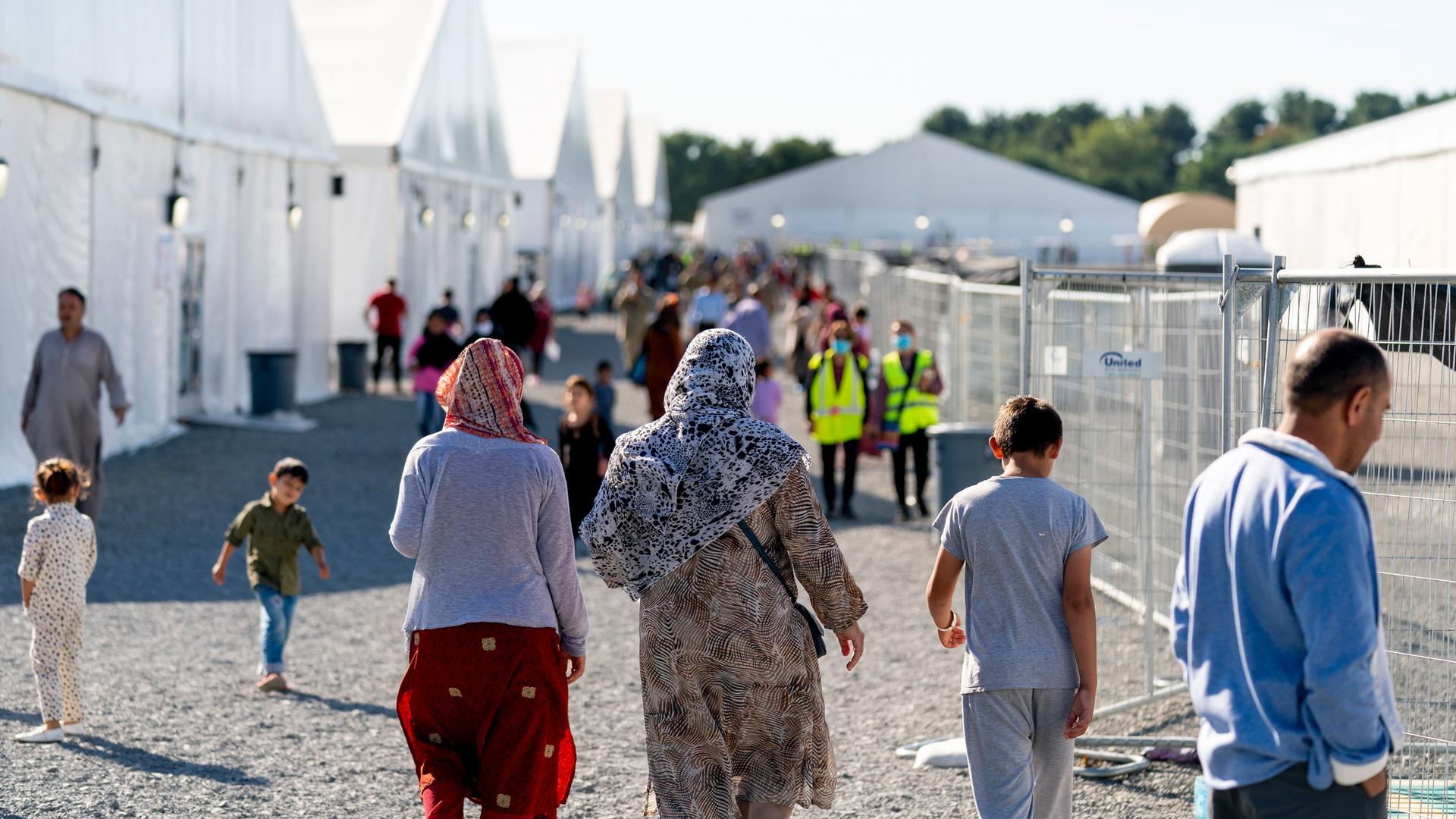On a recent video call to Turkey, Ahmad Naem Wakili’s daughter didn’t recognize him.
“She [didn’t] know me, [didn’t know] who I am. It was very difficult for me,” he said.
His 2-year-old daughter has a mop of curly hair and big, blue-green eyes, like her mom. He often swipes through an album full of photos of the two of them on his phone.
Wakili is one of tens of thousands of Afghans evacuated from their country by the US six months ago when the Afghan government fell, and US troops withdrew from the country. This month, the Department of Homeland Security said that more than 74,000 evacuees have departed from their temporary housing at military bases and are now in resettlement cities across the US. But a bureaucratic quagmire is still keeping many families apart.
Related: A long journey from Kabul brings one family to New Bedford
Wakili landed in Tucson a few months after getting airlifted out of Afghanistan. Since then, he’s talked with his wife and daughter on the mobile platform WhatsApp as often as possible. But he hasn’t seen them in almost a year.
Back in Afghanistan, he was an assistant judge at court at the Bagram Air Base outside Kabul where he helped adjudicate terrorism and security cases involving ISIS-K fighters and members of al-Qaeda and the Taliban.
The work almost killed him. A rocket hit his car a few years back. In photos taken during his recovery, he’s lying in a hospital bed with a bruised face and eyes swollen shut.
Weeks before he was evacuated, he survived a shooting attack that left him with one kidney.
Attacks like those are why Wakili asked his wife to live outside Afghanistan a few years ago. He said his work at the air base meant it just wasn’t safe for her there. She gave birth to their daughter in Turkey.
Related: ‘We have no future’: Afghan women protest Taliban restrictions
Now, the two of them are stuck there, and a mountain of US government paperwork stands in the way of their journey to reunite with Wakili in Tucson.
Tucson City Council member Steve Kozachik has been trying to get the word out about Wakili’s case.
“Somewhere in here, I’ve got the full package, but it’s like pages and pages long,” he said, scanning through a long list of emails about Wakili one afternoon in his office.
Kozachik met Wakili after asking to get in touch with recently arrived Afghans who were staying at a local hotel last year. Wakili swore him in to city council office last year.
“I thought, here’s a guy, who’s an Afghan refugee, he’s been here for two months and already participating in our democratic process, and [I] found out about his wife and daughter still stuck in Turkey, and so we said let’s get them reunited.”

“I thought, here’s a guy, who’s an Afghan refugee, he’s been here for two months and already participating in our democratic process, and [I] found out about his wife and daughter still stuck in Turkey, and so we said let’s get them reunited,” he said.
Since then, Kozachik has reached out to agencies across the US to get Wakili’s wife and daughter to Tucson. It hasn’t happened yet.
“Two congressional offices, one senator’s office … State Department,” he said. “The only piece of good news is they’re on a list.”
Wakili applied to get them here on humanitarian parole — an emergency immigration status granted by the Department of Homeland Security to people who need to come to the US immediately.
It’s the status he and other Afghans were granted automatically after the evacuation. But he’s submitted applications for his wife and daughter twice. Citizenship and Immigration Services, or USCIS, has so far rejected them.
“There is never an answer,” Kozachik said.
Related: Some Afghan university students find refuge — and hope — in Kyrgyzstan

One avenue for Afghans is a Special Immigrant Visa. It’s a status given to people who worked with the US government and suffered serious harm as a result.
But even though Wakili worked at the Bagram Air Base while the US military was there, he was employed in an Afghan court run by the Afghan government, so he’s likely ineligible for the visa.
Meanwhile, his humanitarian parole status will expire in two years.
Sunil Varghese, with the refugee advocacy group International Refugee Assistance Project, explained that when humanitarian parole expires, Wakili and others will be in the US without permanent immigration status — which could mean they may need to return to Afghanistan.
“And right now, the US doesn’t have a plan other than having all those other people apply for asylum,” he said.
Tucson immigration attorney Maurice Goldman is trying to secure asylum for Wakili now.
“This case is probably the strongest asylum claim I’ve seen in my 20 years.”
“This case is probably the strongest asylum claim I’ve seen in my 20 years,” Goldman said.
He hopes that process will help get Wakili’s wife and daughter here, too. He says USCIS is also reviewing their humanitarian parole applications again.
An agency spokesperson said since last July that they’ve received more than 43,000 humanitarian parole applications from Afghans alone. They’re used to getting a total of less than 2,000 requests a year.
Roughly 170 have been accepted so far. Some 1,500 have already been denied.
It’s a grim reality Wakili knows well.
“I’m in the US, my brother and sister they’re in Pakistan, my mother and father they’re in Afghanistan, and my wife and daughter, they’re in Turkey. … It’s one family.”
“I’m in the US, my brother and sister they’re in Pakistan, my mother and father they’re in Afghanistan, and my wife and daughter, they’re in Turkey,” he said. “It’s one family.”
He keeps a photo of himself and his wife taken in Turkey last year. They’re standing in the airport with their arms around each other before he boards his plane back to Afghanistan.
It was the last time they saw each other.
He said he doesn’t mind where they end up — Arizona, California, or any other state. They just need to be there together.
Editor’s note: An earlier version of this story was published by KJZZ.
